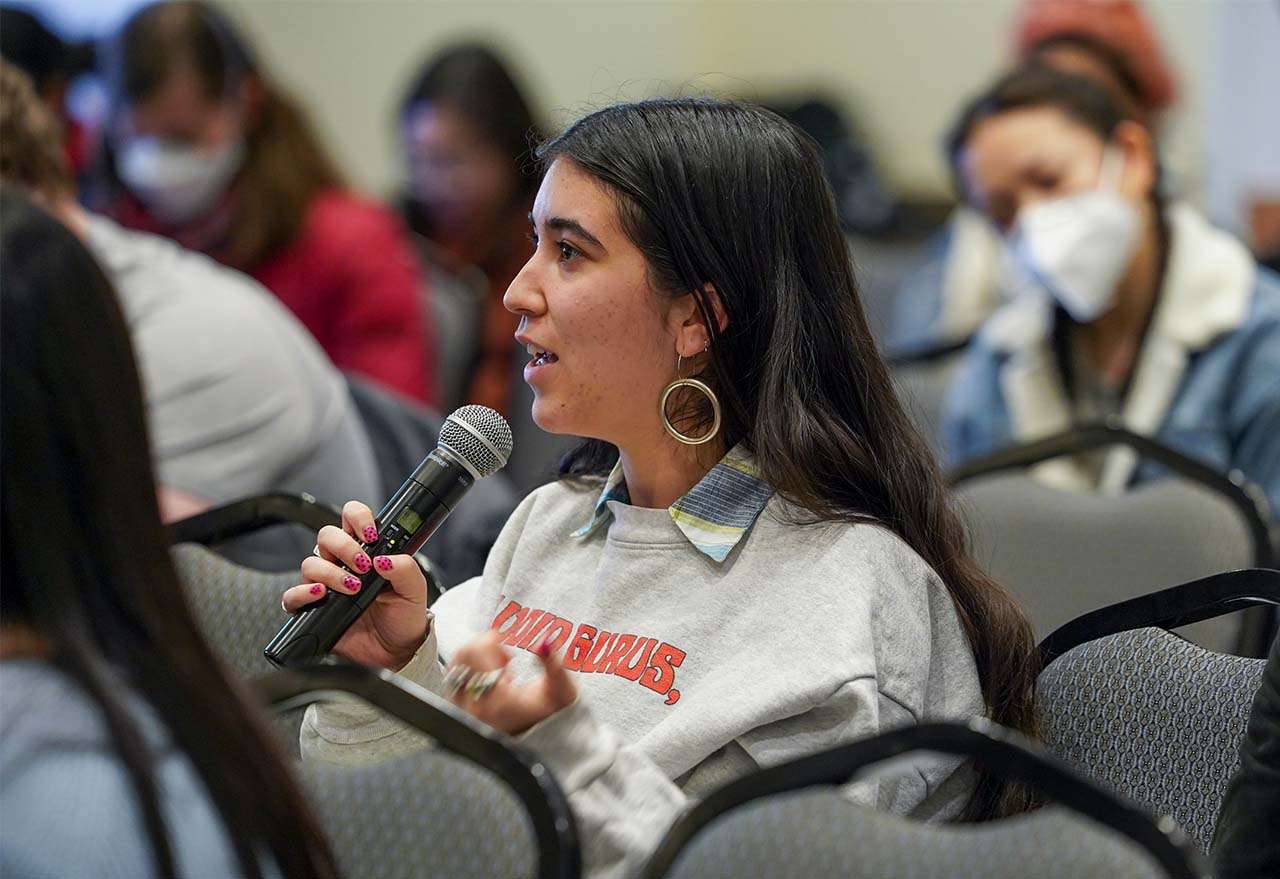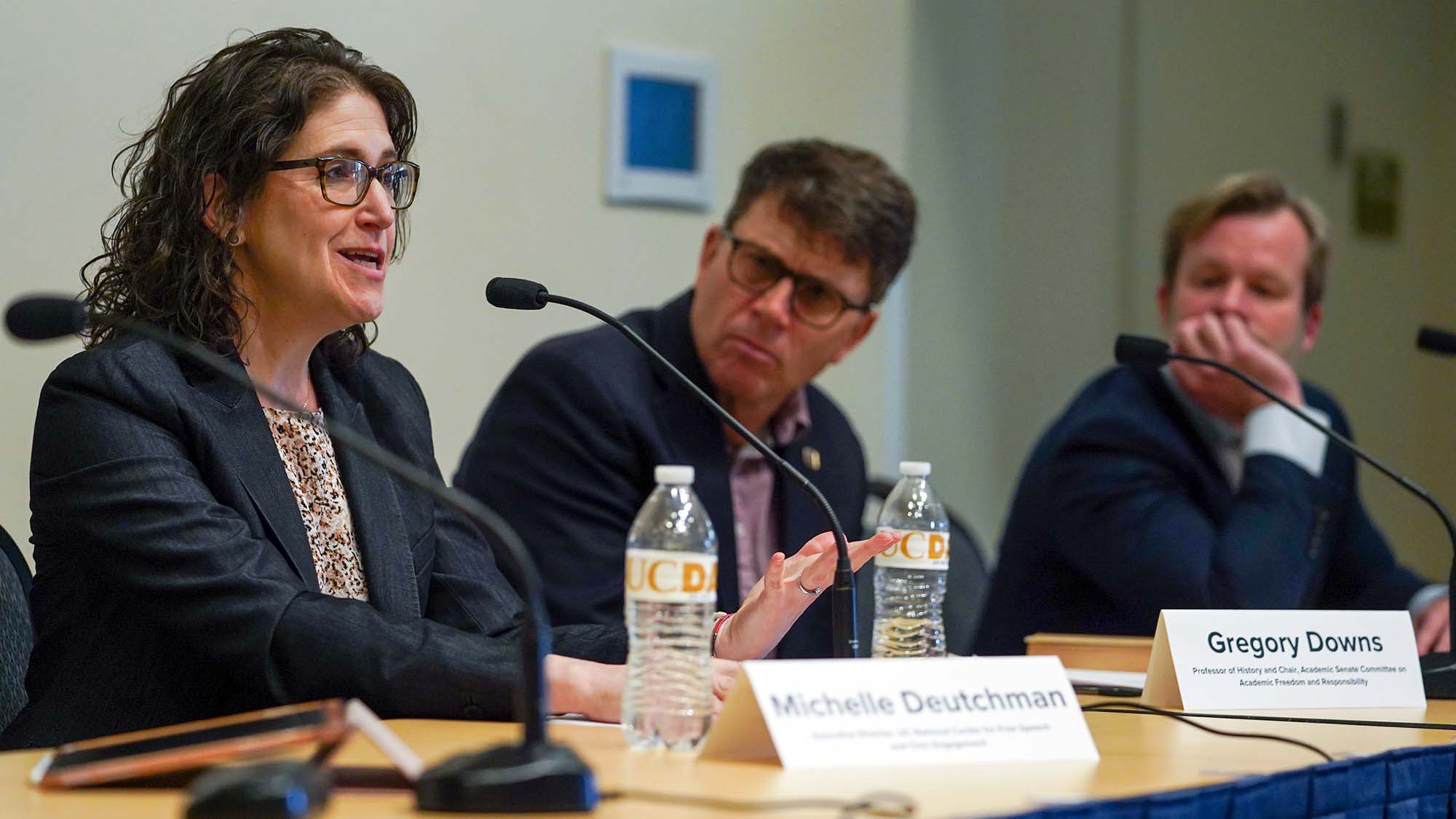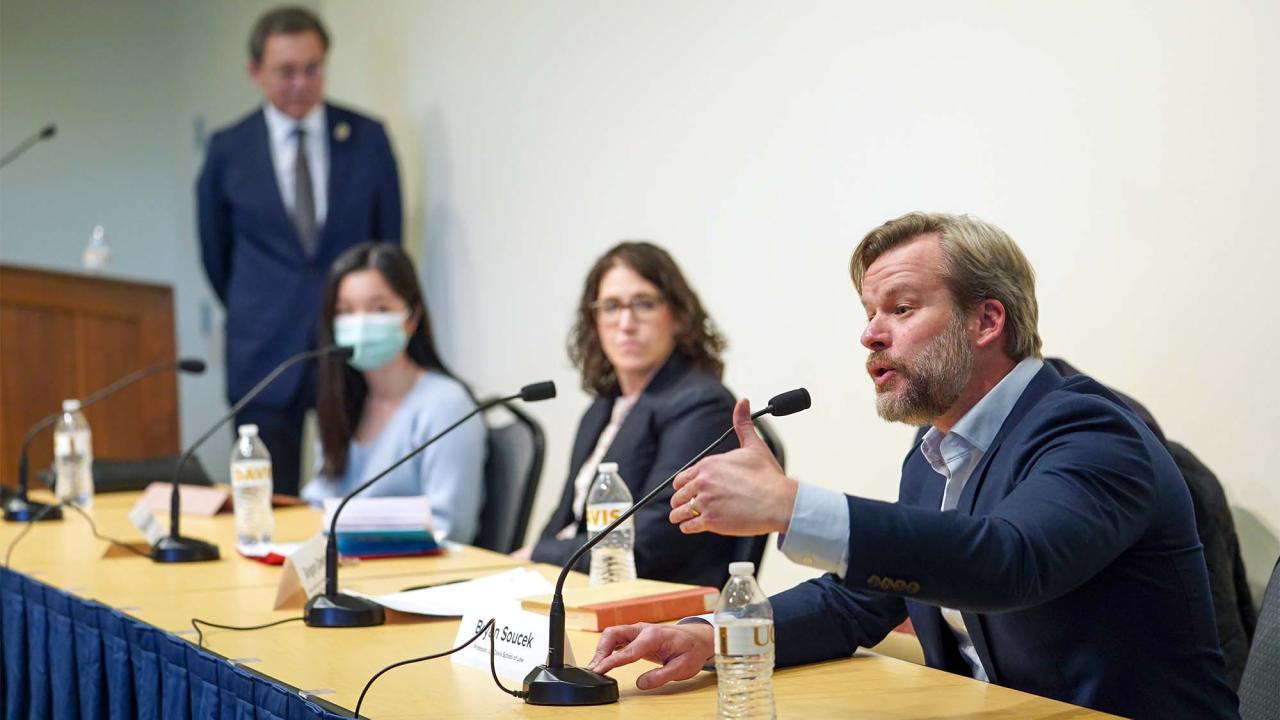The nation’s laws around free speech aren’t perfect, but they beat the alternative of letting the government decide what can and can’t be said, experts said last week at a town hall on campus.
“It's a deeply flawed system,” Michelle Deutchman, executive director of the University of California National Center for Free Speech and Civic Engagement, said of the First Amendment. “And yet I am hard-pressed to find a better example of how we should do things.”
Deutchman joined two other panelists at the UC Davis Campus Town Hall on Free Speech at Public Universities, held March 7 in the Student Community Center. The talk was co-moderated by Kevin Johnson, dean of the School of Law, and Ashley Chan, chair of ASUCD’s Gender and Sexuality Commission.
SPEECH MATTERS
- The Washington, D.C.-based UC National Center for Free Speech and Civic Engagement will hold its fifth annual #SpeechMatters conference, virtually, Thursday, March 23. This year’s theme is “Fighting for Our Democratic Freedoms.”
- The center is accepting applications for its Valuing Open and Inclusive Conversation and Engagement, or VOICE, program, providing up to $5,000 to UC students, staff and faculty for research, programs and activities related to the center’s mission.
About 100 people attended, including campus leaders like Chancellor Gary S. May, Provost and Executive Vice Chancellor Mary Croughan, Vice Chancellor for Finance, Operations and Administration Clare Shinnerl.
The speakers discussed the fact that under the First Amendment, if UC Davis allows any guest speakers it must allow all, regardless of topic.
“The basic rule with the First Amendment is once you open your door and say ‘We're going to allow in speakers,’ then you cannot distinguish between who speaks,” Deutchman said.
That applies even if what is said is hateful, the speakers said.
“I think the only reason for protecting hate speech is that I don't trust the government to define what that means,” said Brian Soucek, professor in the School of Law and 2020-21 fellow at the UC National Center for Free Speech and Civic Engagement.
But free speech rules aren’t absolute, Soucek and others pointed out — for example, faculty members can’t claim free speech protections to talk about irrelevant subjects in class, and threats aren’t allowed. But other speakers, no matter how distasteful their speech, must be allowed.
The experts speaking at the event acknowledged that hate speech is most often targeted at minority groups.

“The harm of harmful opinions does not land proportionately or equally,” said Gregory Downs, professor of history and chair of the Academic Senate Committee on Academic Freedom and Responsibility. “And so it is easy to say, as a tenured faculty member [and] a middle-aged white guy, you know, ‘Easy for you to say it's worth incurring those harms [to protect free speech].’ I completely understand that point and that position and I don't dismiss that. I do think that we have to think about how we utilize the tools at our disposal … to try to mitigate those harms [and] to try to support people who are harmed.”
CHANCELLOR’S VIDEO
Just as free speech gives people the right to say disgusting things, the panelists said, it also gives people the right to protest, and to use UC Davis’ Principles of Community as a guide as to how to respond.
“Think about how you choose to use your voice or how you choose to not use your voice, because not using your voice is also part of the First Amendment,” Duetchman said. “Do you use your voice when you hear a joke in the dorms? Do you use your voice when someone makes a comment in a class? … It's incumbent upon you to remember in those moments when there is tension between different values in the university, how we're going to elevate the values that we want to say are super important.”

Media Resources
Cody Kitaura is a News and Media Relations Specialist in the Office of Strategic Communications, and can be reached by email or at 530-752-1932.
